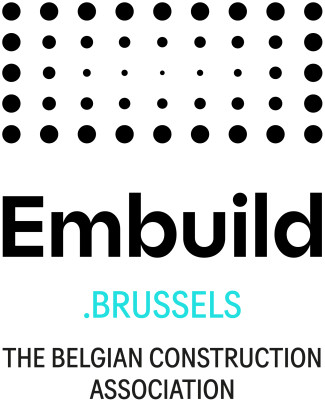What is a planning permission?
A planning permission is a permit that specifies a building's purpose, use, appearance, and supporting structures. Planning permission can also extend to certain parcels of land.
When is a planning permission required?
Even if the estate agent thinks that everything is in order, you must still find out about the legal urban development situation of the property by consulting the Openpermits website and then the municipality's urban planning service
Here is a video that explains what to do (FR)
You can then determine the acts and works that require planning permission with the help of this second video.
Useful links
- The regulatory urban planning plans
- The urban planning regulations
- the maps available on Brugis, in particular those of "Brussels Planning and Heritage" and "Perspective.brussels"
- The acts and works exempt from planning permission because of their minor importance.
Be aware
- It is impossible to carry out a project that is incompatible in terms of allocation with an urban development plan of the region or municipality. There is no point in submitting a planning application as it will be refused. The same applies to creating offices in saturated zones (see the CaSBA).
- Certain changes made without permission by previous owners/tenants are considered an offense. You then have to reach an agreement with the owner, particularly as some municipalities require a single file covering both the work you are planning and the regularisations.
- You also need an environmental permit for some activities, machines or products.
- Submit your permit applications as soon as you have decided on the address of the premises, whether you are the (future) tenant or owner. Plan ahead so that you take into account the time required to prepare your file and process your permit application! You cannot take action until you receive the necessary permission.
- It would be reckless to sign a commercial lease, sales agreement, etc., before you have received your permission. A good tip if you have to do it: include a suspensive clause in these documents to prevent them from coming into force if permission has not been issued or to ensure that the current owner regularizes any existing violations.
How to obtain a planning permission?
urban.brussels provides a guide that will help you to prepare your application, request a project meeting if necessary and then submit your file to the relevant authority (the municipality or urban.brussels), find out the stages in the procedure for your type of application (with or without... public enquiry, consultation committee, opinion of a delegated officer, opinion of the SIAMU, etc.).
As a general rule, a single application file is submitted for all the acts and works you are planning or to be regularised. Some municipalities require a separate application for time-limited acts and works (such as putting up a sign).
On this site, we also provide practical information, example plans and videos to help you prepare a planning application without an architect for:
Special cases in terms of procedure
- Your project is of a temporary nature as specified by the legislation (e.g. the putting up of a sign) and will be covered by time-limited planning permission.
- Your project does not require an architect if the planned acts and works do not pose a stability problem.
- Your project requires both planning permission and a class I.A or I.B environmental permit; this is called a mixed project. Some parts or stages of the procedure will be unique to both files (e.g. the incidence report, the specific advertising measures).
- What if your project does not comply with all the urban planning regulations set out in a municipal plan or a regulation? Your file must state the derogations requested and justify them. Please note that derogations from the allocations in a plan are never permitted.
- Your project has an environmental impact and is stated:
- in Annex A of CoBAT: then an accredited design office has to complete an incidence study.
- in Annex B of CoBAT: then a competent person must complete an incidence report.
- An accredited design office needs to carry out a soil study before issuing your planning permission due to the potential impact of your project on polluted land.
How can you determine if a property's soil is contaminated? Do an address search on the Brugis website (see the "Soil Condition Inventory" map in "Brussels Environment") - Will your project influence the energy consumption of a building, like (re)building or altering a door or bay window?? You must attach an EPB to your planning permission application file.
- Does your project include parking? You must meet the standards imposed by the RRU.
- If your project is of a certain size, it will automatically be subject to planning charges which can sometimes be substantial.
- Does your file involve a mixed project, a file with an incidence study or report, a public utility installation or a building that is protected from a heritage point of view or soon will be ("single" permit") or is it submitted by a person under public law? In this case, the competent authority is urban.brussels.
Who can help me ?

